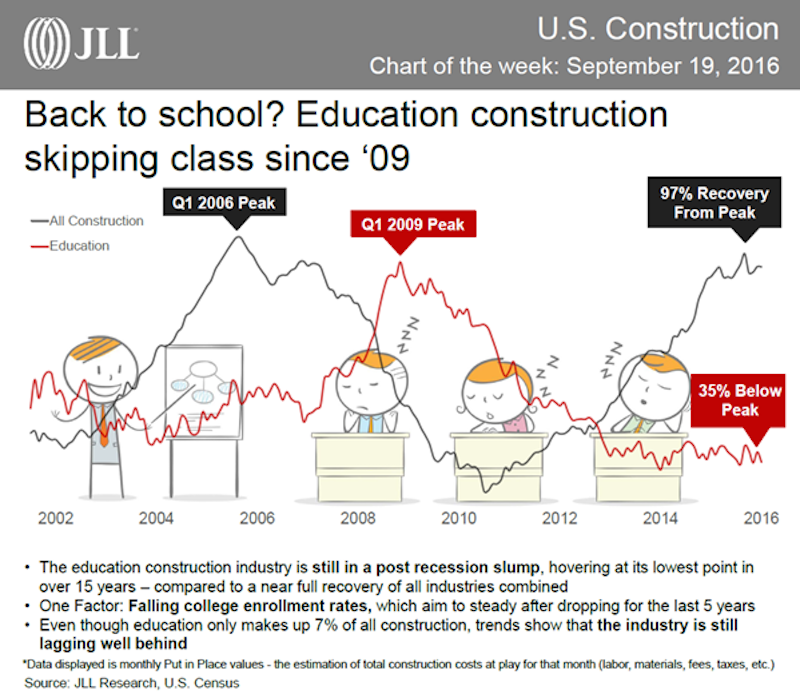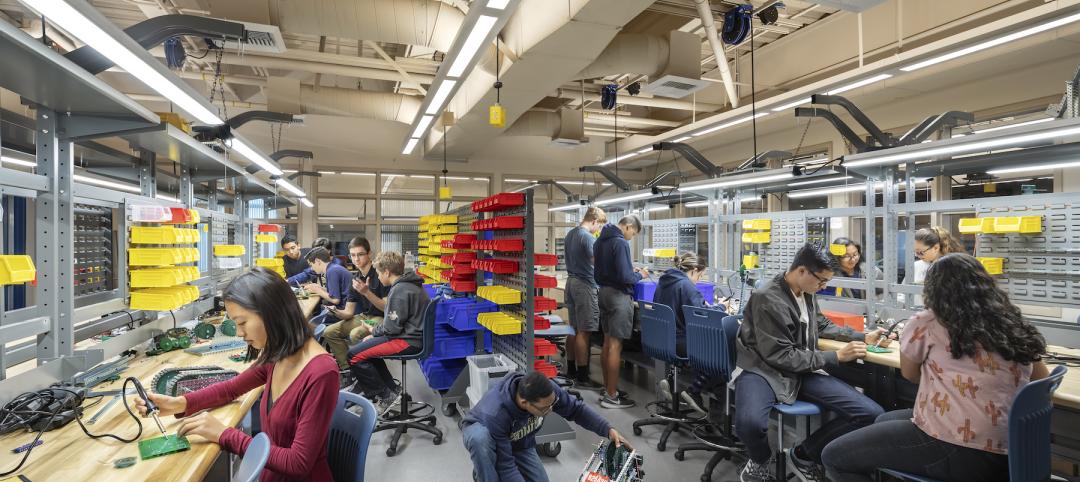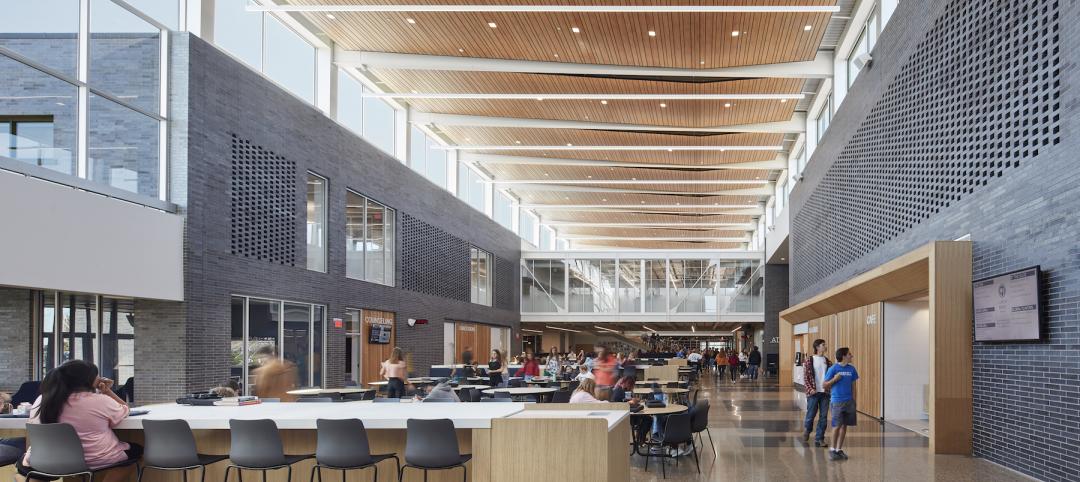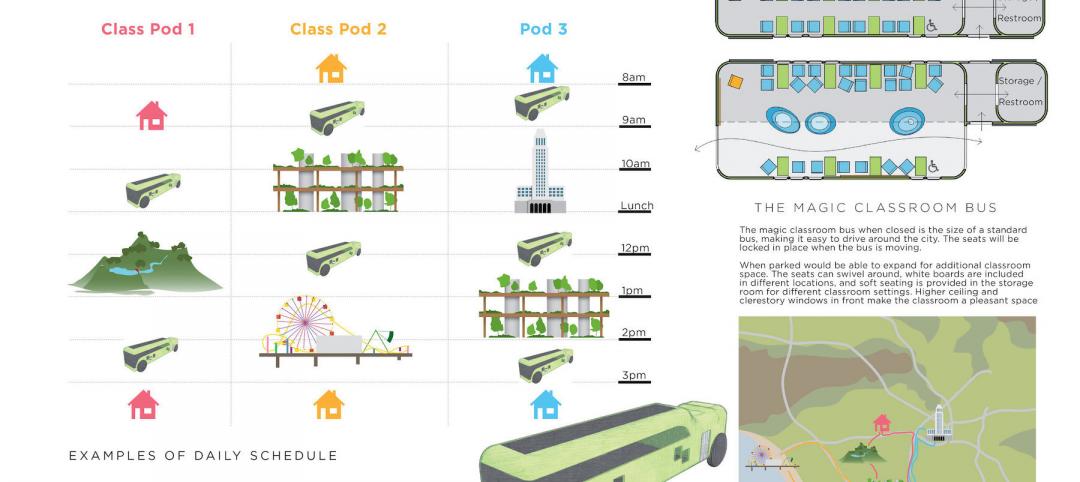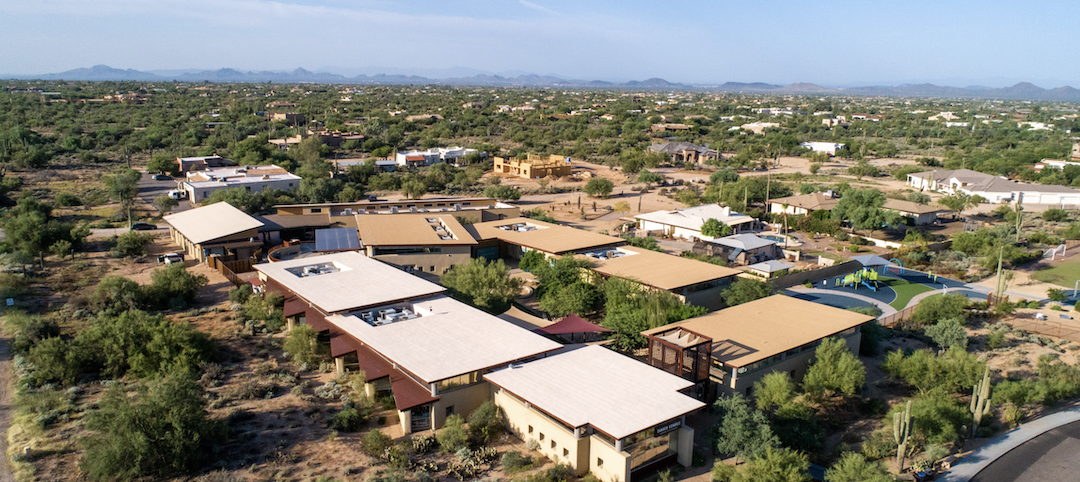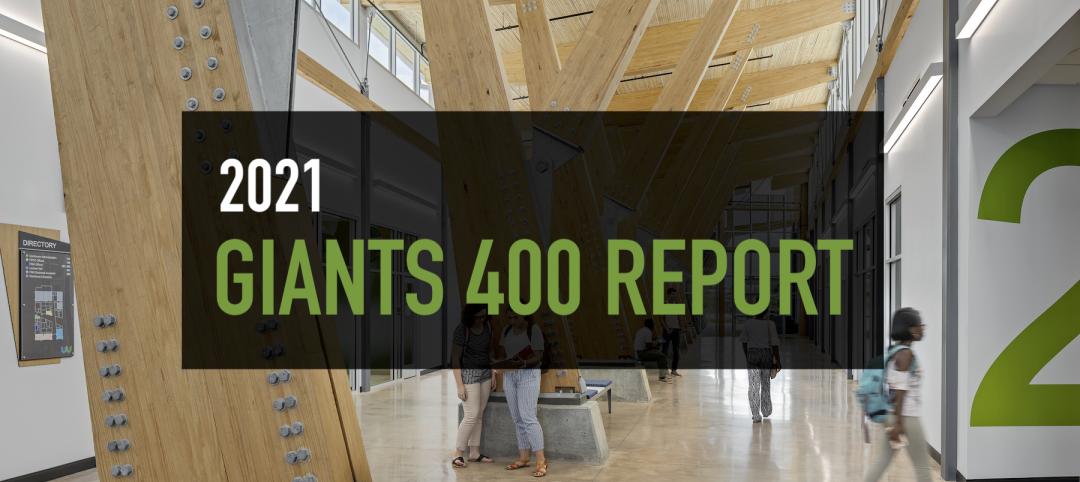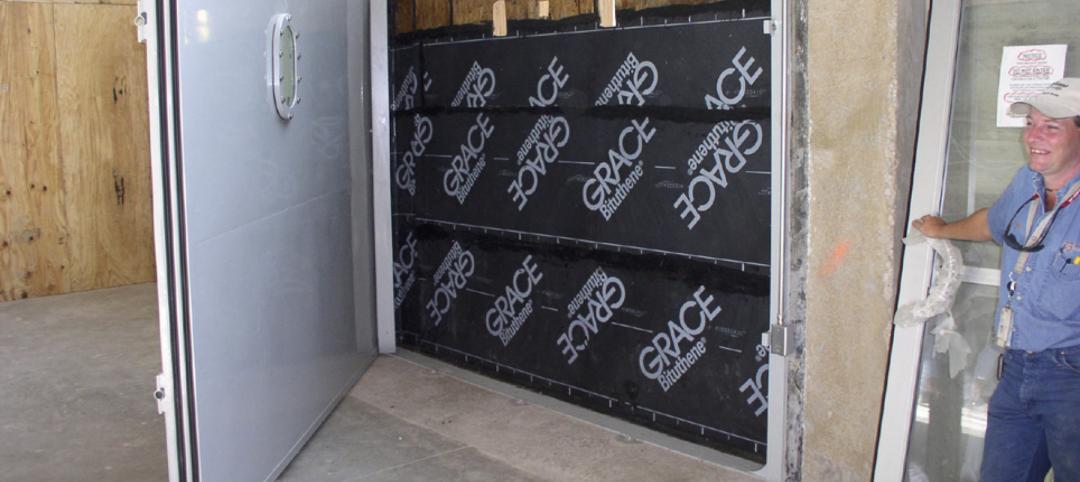Construction investment in the education sector is still in a post-recession slump, even as spending on all construction continues to rise from its low point in early 2011.
The latest “Construction Put in Place” estimates from the Census Bureau show total construction spending in August at $1.142 trillion. That’s a 97% recovery from the most recent spending peak in the first quarter of 2006, and 51.4% higher than the Census estimate for January 2011, $754.7 billion, which was the lowest point for construction during the recession.
The education sector remains one of the biggest in terms of nonresidential construction put in place. But Census’ August 2016 estimate for this sector—$86.1 billion—is still 35% below the peak spending for this sector in the first quarter of 2009.
Indeed, while construction in general has been on the upswing for nearly six years, the education sector has been plummeting from its most recent high of $108.8 billion in May 2009, with a few blips of life in between. Over the past few years, education construction spending has leveled off, though it’s still below the investments in the early and mid 2000s.
Mason Mularoni, JLL’s Project Development and Construction Research Lead, notes that education’s recent peak was mostly stimulated by government funding. “It was almost countercyclical to commercial real estate as the whole.” But in the last several years, government spending has dried up in all but a handful of states (like Texas and California), as school enrollment has fallen off.
“On the demand side, with enrollment flat, state funding has been flat to down,” says Brain Terrell, JLL’s Managing Director and Higher Ed Practice Group Lead.
At the same time, universities find themselves in what Terrell calls a “keeping up with the Joneses” dilemma, where recruiting and retaining students often hinge on the relative quality of a campus’s academic and living facilities and amenities.
To stay in the race, Terrell says more colleges are financing new construction via public-private partnerships, and are leaning toward projects that can produce revenue streams, such as housing, dining, parking and other facilities that might have user fees attached.
Terrell and Mularoni note, too, that education spending is down because many colleges are focused on expanding their graduate school attendance. “So much of undergraduate [learning] can be done online, so why spend more on classrooms?” Terrell says.
A similar dynamic is occurring at the elementary and high school levels, where a growing number of school districts are consolidating schools, and are aligning themselves with teaching pedagogies that incorporate online research into the curriculum. The conventional classroom is giving way to more open collaborative spaces that include outdoor areas.
The question now is whether education construction spending will continue to decline, or if—as data for the past few years show—it will settle at its current level?
Mularoni concedes that the spending peak was probably inflated and unsustainable. “But if you look at the numbers, spending now isn’t that far off from what it was in 2004. We see spending in the future falling somewhere in between these years, because the institutions still say their campuses are in great need of renovation and new construction.”
Related Stories
Coronavirus | Jan 20, 2022
Advances and challenges in improving indoor air quality in commercial buildings
Michael Dreidger, CEO of IAQ tech startup Airsset speaks with BD+C's John Caulfield about how building owners and property managers can improve their buildings' air quality.
K-12 Schools | Dec 10, 2021
Trends in K-12 school design, with Dan Boggio and Melissa Turnbaugh of PBK
Dan Boggio and Melissa Turnbaugh of PBK, the largest K-12 design firm in the U.S., discuss the favorable market conditions and the latest trends in K-12 school design with BD+C's Rob Cassidy.
Giants 400 | Nov 18, 2021
2021 K-12 School Sector Giants: Top architecture, engineering, and construction firms in the U.S. K-12 school facilities sector
PBK, Gilbane, AECOM, and DLR Group head BD+C's rankings of the nation's largest K-12 school facilities sector architecture, engineering, and construction firms, as reported in the 2021 Giants 400 Report.
K-12 Schools | Nov 10, 2021
K-12 school design innovation: 'Learning Everywhere' and the mobile classroom
Last September, AIA San Francisco awarded the Professional Category in its 2021 Future Classroom Competition to a five-person team from Culver City, Calif.-based Berliner Architects. The firm was selected for its “Learning Everywhere” idea that features a mobile strategy for education at school, home, on field trips, and in transit. BD+C's John Caulfield discuss that concept with Richard Berliner, AIA, Principal, Berliner Architects.
School Construction | Sep 30, 2021
Renovation of Candeo North Scottsdale completes
SPS+ Architects designed the project, which was built by Adolfson & Peterson.
| Sep 20, 2021
K-12 school design trends for 2021, with Wold's Vaughn Dierks
K-12 school design exert Vaughn Dierks discusses the latest K-12 school design trends and needs.
Giants 400 | Aug 30, 2021
2021 Giants 400 Report: Ranking the largest architecture, engineering, and construction firms in the U.S.
The 2021 Giants 400 Report includes more than 130 rankings across 25 building sectors and specialty categories.
Resiliency | Aug 19, 2021
White paper outlines cost-effective flood protection approaches for building owners
A new white paper from Walter P Moore offers an in-depth review of the flood protection process and proven approaches.
Contractors | Jul 23, 2021
The aggressive growth of Salas O'Brien, with CEO Darin Anderson
Engineering firm Salas O'Brien has made multiple acquisitions over the past two years to achieve its Be Local Everywhere business model. In this exclusive interview for HorizonTV, BD+C's John Caulfield sits down with the firm's Chairman and CEO, Darin Anderson, to discuss its business model.
Daylighting Designs | Jul 9, 2021
New daylighting diffusers come in three shape options
Solatube introduces its newest technology innovation to its commercial product line, the OptiView Shaping Diffusers.


